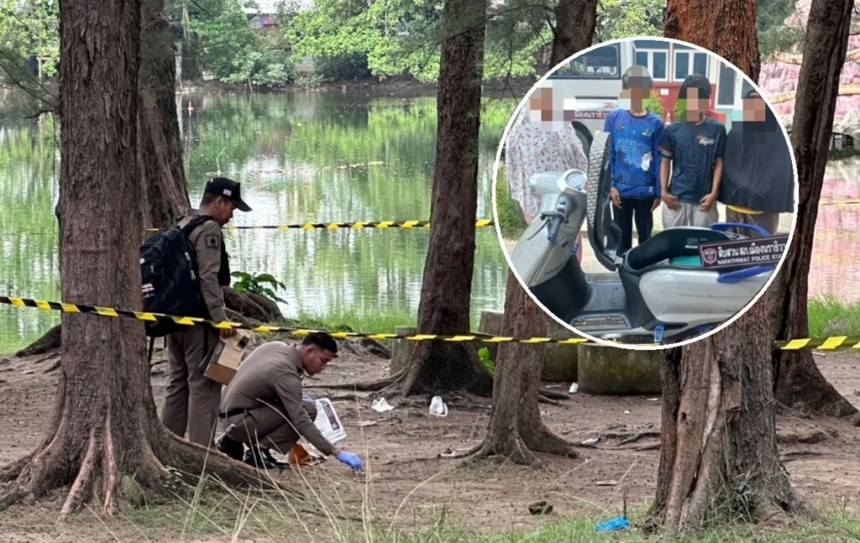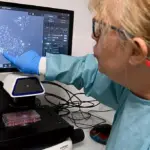NARATHIWAT – A quiet evening at a popular Narathiwat beach turned deadly when a young couple were shot dead after refusing to hand over their motorcycle to a group of teens. Police have arrested three boys, aged 14 to 16, in connection with the murder.
The victims were identified as 22-year-old university student Nida Chaisombat and her fiancé, 24-year-old mechanic Somsak Rattanakorn. Officers credit rapid coordination for the arrests, and the case has reignited public anger over rising youth violence across Thailand.
Witnesses described chaos as shots cut through the sound of waves and evening chatter. Abdullah Hassan, a local fisherman, said he was working about 50 metres from the hammock where the couple sat. He recalled a group of motorcycles arriving, then a brief argument, followed by gunfire that sent people running for cover.
Narathiwat police say the attack took place around 9 p.m. on 29 October near Naga Beach in Muang district. The suspects are from Ra-ngae district. Earlier that day, police had seized one of their motorcycles at a checkpoint for missing paperwork and mismatched plates.
Angry and left with only one bike, the group set off again along the coast.
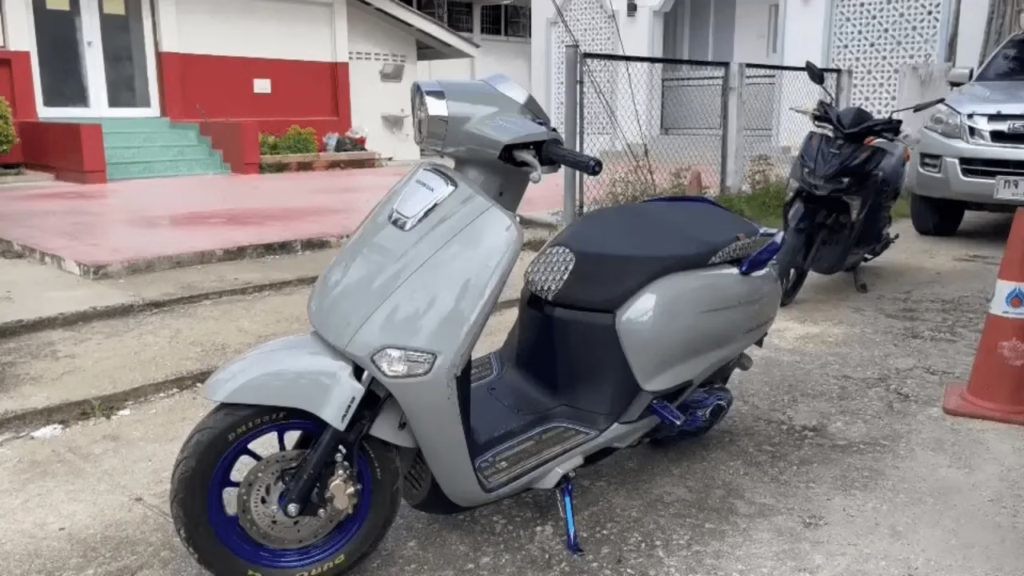
Investigators say the teenagers noticed the couple’s Honda Giorno motorcycle parked beside their hammock. They approached and demanded the keys. During questioning, one suspect reportedly admitted they wanted the motorbike and thought it looked “cool.”
Nida, originally from Pattani, studied graphic design through distance learning. Somsak, from Yala, worked as a mechanic. Friends said they had planned a quiet evening by the sea before their wedding. They had saved for months to buy the motorcycle, a modest step toward a simple life together. When they stood their ground and told the teens to leave, the situation spiralled.
Police reports say the eldest suspect, 16, fired a .38 revolver at close range. Shots struck Somsak in the torso, and he collapsed. A second gun, a 9 mm pistol allegedly held by a 15-year-old, was then fired at Nida. The attackers grabbed the motorbike keys, about 2,000 baht in cash, and Nida’s phone, then fled.
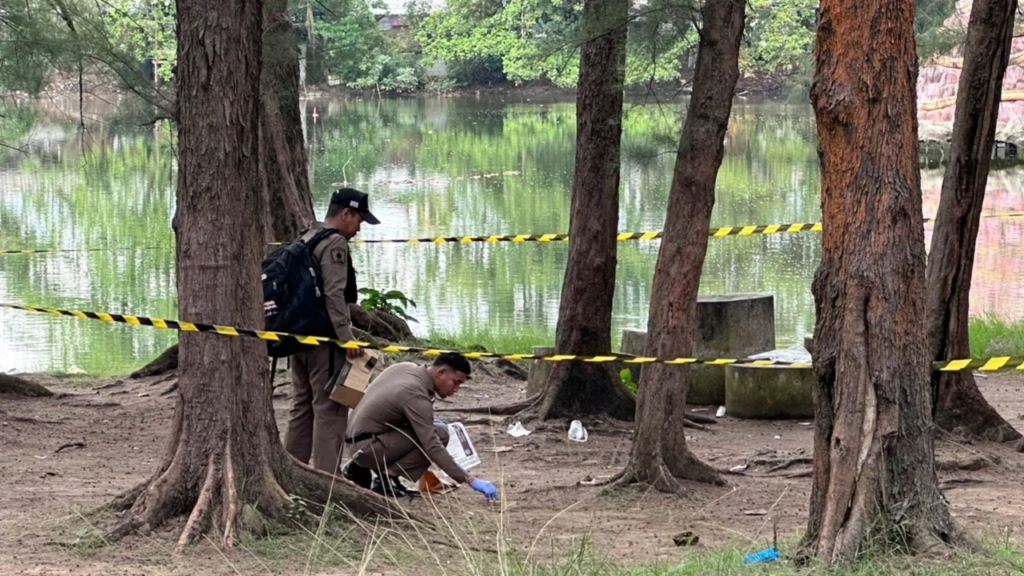
Emergency responders arrived within minutes, but both victims were pronounced dead at the scene. Autopsies later found fatal internal bleeding. Police say there was no evidence of sexual assault, and robbery did not appear to be the sole motive. The Honda Giorno motorcycle, marked with a sticker reading “N&S Forever,” was found abandoned in mangroves near Ra-ngae a few hours later with a warm engine.
Footage of grieving relatives appeared on Thai media, including the Bangkok Post and Thai PBS. Nida’s mother, holding a photo from Songkran, said her daughter had a bright future. Somsak’s brother vowed to see the case through and condemned the violence.
On social media, the hashtag #JusticeForNidaAndSomsak (Translated from Thai) drew tens of thousands of posts overnight, mixing condolences with calls for tougher measures on youth crime.
Police Track the Suspects and Secure Confessions
Police launched Operation Tidebreaker within hours, bringing together Royal Thai Police units, local rangers, and community sources. The key break came at a checkpoint on Route 405, about 20 kilometres from the beach. Around midnight, officers stopped three teenagers riding a single motorbike without helmets or documents.
Deputy Inspector Somsri Kerdsuk led the investigation. She said the boys matched descriptions from witnesses, including their clothes and bikes. A search found two handguns tucked at their waists and a bloodied cloth. CCTV from a nearby seafood stall supported the account of events, showing the approach, a brief exchange, and shots moments later.
The suspects were taken to Muang Narathiwat Police Station by 3 a.m. Child psychologists joined the interviews under juvenile procedures. Within hours, police say the 16-year-old admitted firing the first shots, saying he panicked.
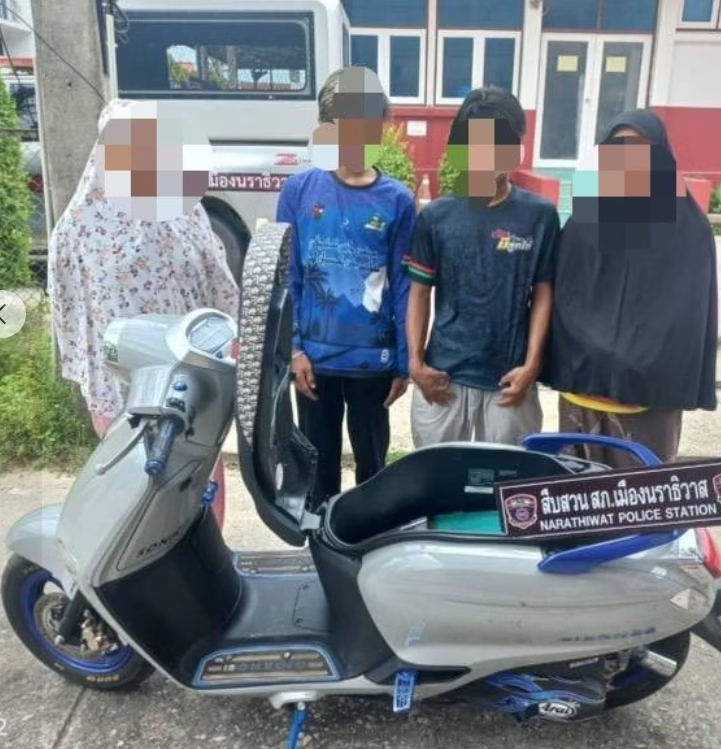
The others admitted their part in the robbery and flight. A subsequent search of a hideout in Ra-ngae turned up paperwork for the impounded motorcycle, spent shells that matched those at the beach, and methamphetamine pills, pointing to drug use.
Prosecutors filed charges of premeditated murder under Section 288 of the Thai Penal Code, illegal possession of firearms under the Arms Control Act, and theft. As the suspects are minors, the case will go to the Juvenile and Family Court in Songkhla.
Depending on the court’s decision, they could face detention in a reform centre or long prison terms if treated as adults. Inspector Kerdsuk said the response would include rehabilitation, with counselling and skills training, to reduce the risk of reoffending.
Community leaders backed the swift action and asked for stronger patrols and outreach. At Friday prayers, Imam Hassan called the killings a deep wound for local teens at a time when peace efforts in the South need trust and restraint.
Rising Violence Involving Teens
This case fits a troubling national trend. Royal Thai Police figures indicate juvenile offences have risen by about 35 percent since 2022. Violent crimes involving teens, including assaults and shootings, rose by roughly 22 percent in 2024.
Thailand’s national murder rate stood near 2.6 per 100,000 last year. In the southern border provinces, including Narathiwat, Pattani, and Yala, rates are roughly twice as high, influenced by long-running conflict and the flow of illegal firearms.
Criminologist Dr Arun Vichit of Chulalongkorn University says the problem blends family stress, poor local economies, and online bravado with easy access to drugs and guns.
Several high-profile cases over the past two years have added to public concern, including a shooting by a 14-year-old in Korat in February 2024 that killed three people, the killing of a homeless woman by a group of teenagers in Sa Kaeo in January, and December incidents involving a school stabbing in Chonburi and a teen shooting in Nakhon Si Thammarat.
In parts of the Deep South, social media posturing and methamphetamine use fuel small gangs that move easily between districts where jobs are scarce and families are under pressure.
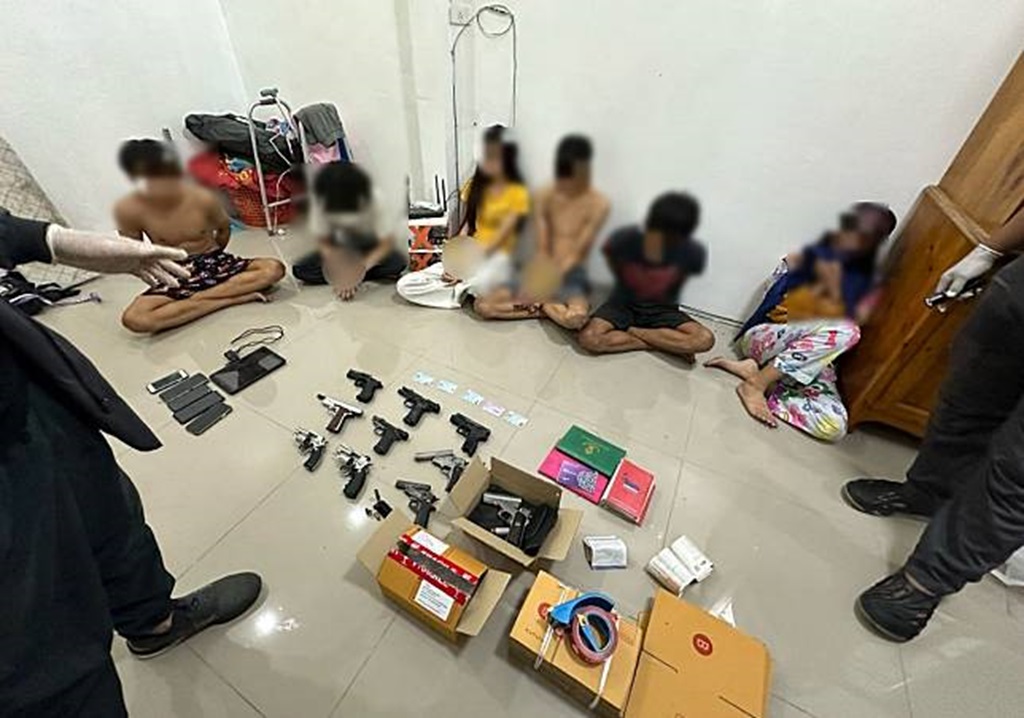
UNICEF Thailand estimates more than 400,000 children aged 12 to 17 face risks that can lead to exploitation and crime. Online grooming and drugs are key entry points. While the government’s 2024 Juvenile Justice Reform lowered reliance on punishment and raised structured care for young offenders, critics say support is thin. Only a fraction of at-risk youths receive regular counselling because programmes lack funding and staff.
In Narathiwat, where more than 7,000 people have died since 2004 in the separatist conflict, teachers and parents speak of a generation caught between fear and frustration. “Bombs tear the land, and now guns wound our children’s futures,” said teacher Fatima Noor.
The government of Prime Minister Paetongtarn Shinawatra pledged 500 million baht for youth centres in the South in October. Residents want to see centres opened, staff hired, and activities running, not just promises.
As families in Pattani and Yala prepare the funerals, friends will lead the procession with motorcycles draped in flowers. It is a stark image, a couple who dreamed of a quiet life, remembered on the very machines that gave them freedom and joy.
Thailand grieves for Nida and Somsak, and for young people on a path that ends in violence. What changes now, from policing to prevention, will shape whether this is a turning point or another loss absorbed and forgotten.
Related News:
Teens on Motorcycles Terrorize Residents in Phayao City




